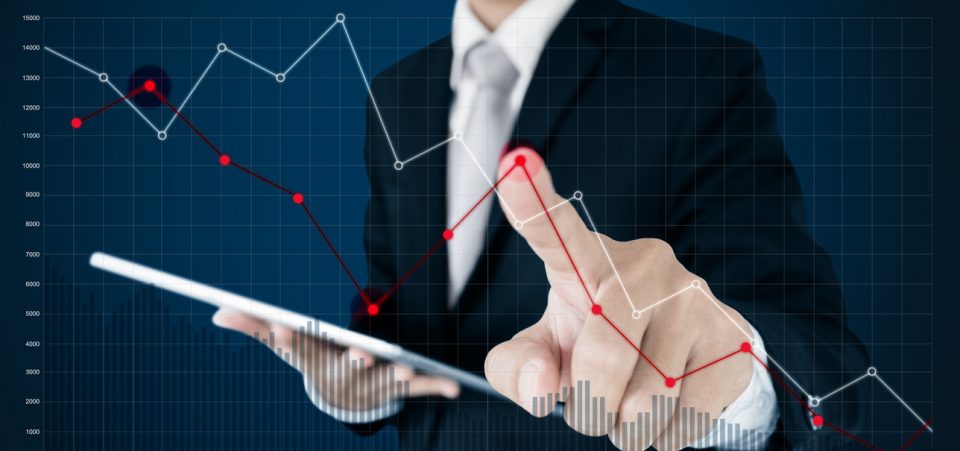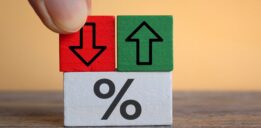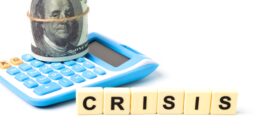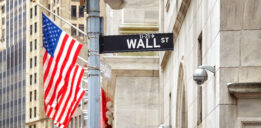President Trump’s Unusual Complaint About Fed Rates Betrays His Fear of Economic Collapse
Show me someone who’s complaining about rising interest rates, and I’ll show you someone who worries about economic collapse in the United States.
Clearly, those who fear the Federal Reserve’s rising interest rates and the end of quantitative easing also question the ability of the U.S. economy to grow without more priming of the proverbial pump.
Indeed, should the Fed suddenly announce a reversal of its current rate-hike plan, it could trigger a stock market correction.
Investors would take such a move as indicating a lack of confidence. And that’s perhaps the main reason that U.S. presidents, including George W. Bush and Barack Obama, have avoided influencing or even commenting on Federal Reserve policy (at least in public).
So what does it say about President Donald Trump when he does just that? (Source: “Trump lays into the Federal Reserve, says he’s ‘not thrilled’ about interest rate hikes,” CNBC, July 19, 2018.)
Federal Reserve Needs Complete Independence
No matter how much President Trump has tried to diverge from past occupiers of the Oval Office, it’s highly unorthodox for him to criticize the Fed’s policy.
If he’s doing so, it’s because he’s afraid that interest rates are going up too fast—so fast as to trigger an economic collapse.
It matters little that the White House has tried to explain away and soften Trump’s less-than-favorable feelings about the rate hike. The damage has been done, and it sent a loud and clear message.
Wise Investors Pay Attention
The markets so far have either turned deaf or, more likely, have played deaf. Because to have understood what Trump was implying with his interest-rate comments would have sent many overvalued stocks crashing.
In that sense, President Trump’s Fed comments are useful. They should be interpreted as a warning that the economy, the financial markets, and the entire economic ecosystem are heading into a wall.
Yes, Trump himself fears an economic collapse.
Trump knows that the economy remains the issue that Americans worry most about. Or at least it’s the issue they should be most worried about. He does not want to go down as the president who led the U.S. into another depression.
One of the signs of the upcoming economic collapse is waiting in the mailboxes of many American households. It’s the monthly credit card bill (or bills). Add to that student loans, mortgages, credit lines, quick loans, and car payments and the picture becomes as clear as it is dire.
American private debt (also known as household debt) and the federal U.S. debt are both at record levels. The federal debt is over $21.3 trillion and household debt stands at $13.2 trillion. That’s some $500.0 billion higher than the 2017 household debt of $12.7 trillion. (Source: “US Total Household Debt,” YCharts, last accessed August 6, 2018.)
Americans waste more than a quarter of their annual income servicing their private debt, which keeps on climbing.
A Margin Call for the Entire American Economy
Clearly, interest rates rising at a faster pace than expected can only increase the risk of defaults and bankruptcies.
A high debt burden also slows down economic growth and forces investors out of the equity markets, especially the many who borrowed money to take advantage of one opportunity or another on margin.
Add to that the increasing role of high-frequency trading, or algorithmic trading, and the risk of a debilitating crash is too high to ponder. As a reminder, an untested algorithm triggered the flash crash of 2010.
Say there’s an algorithm based on economic indicators and the results of other algorithms; it would amplify the effects of bad news. The result would be a massive flash crash, which would expose the weak foundations of the debt-based U.S. economy.
The overall sensation is that the United States (and the rest of the world) is heading into a 2008-like economic collapse—or worse.






